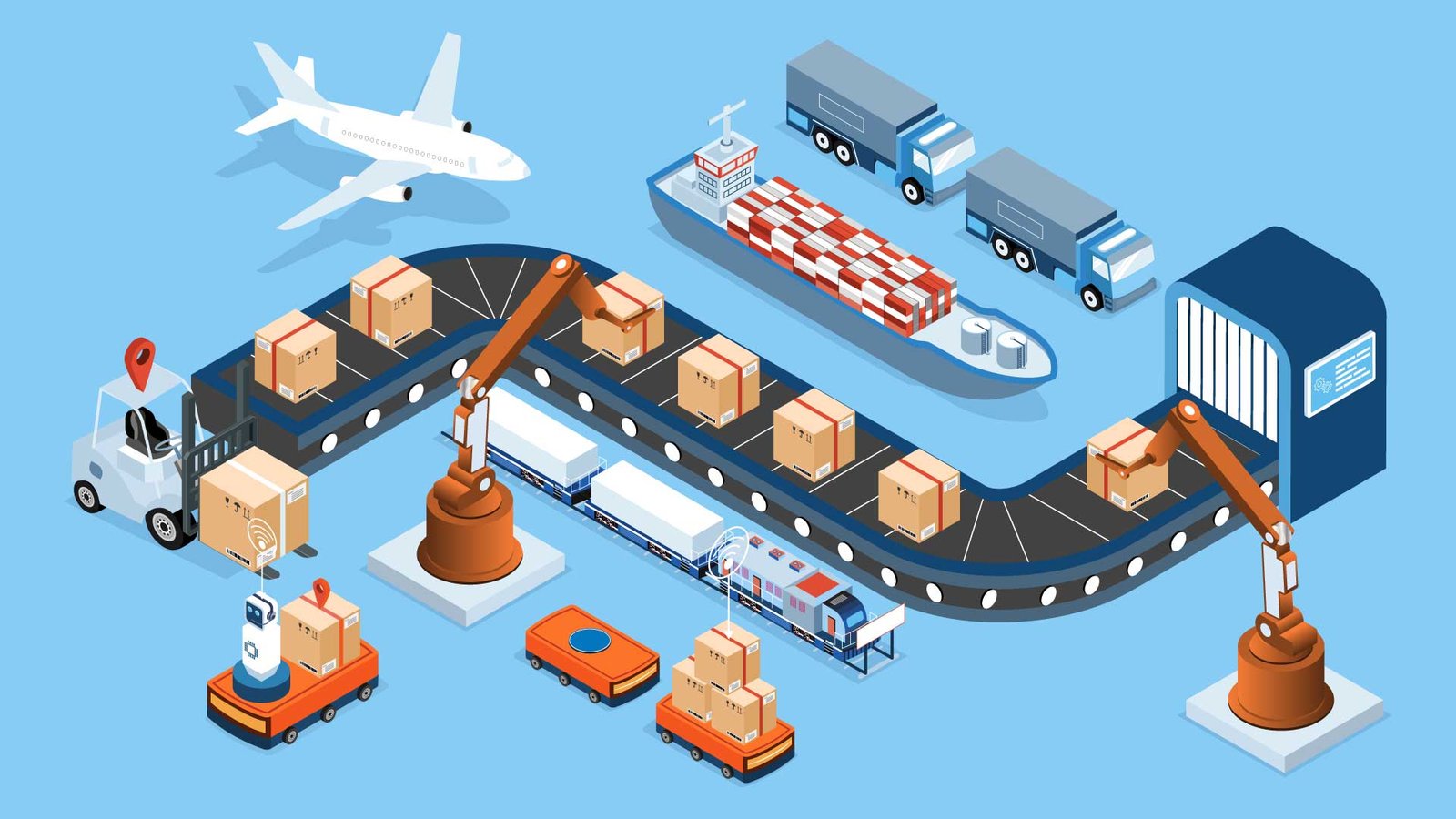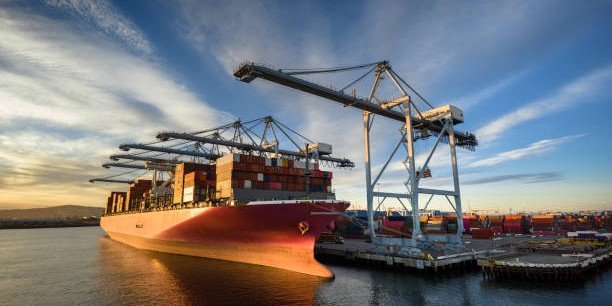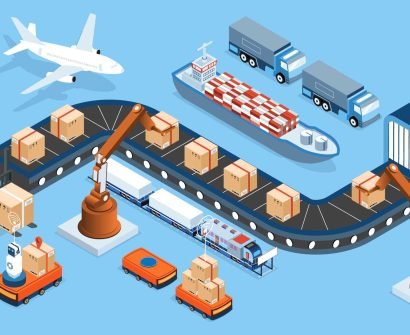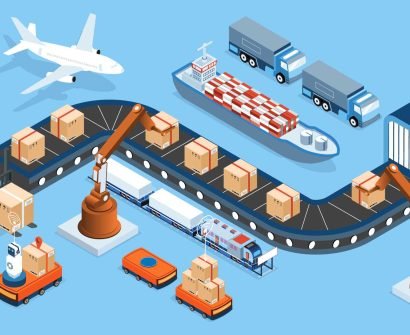
In Coursave, logistics courses online relate to a crucial component in the global supply chain that ensures the efficient movement of goods and services from the point of origin to that of consumption. With the rapid growth of e-commerce, technological advancements, and the increasing demand for efficient delivery systems, the logistics industry is evolving at an unprecedented pace.
Logistics Courses Online
Many professionals are turning to our logistics courses online to develop the skills necessary for success in this dynamic field. This post explores the key aspects of these courses, their benefits, and what you can expect to learn from such programs. Our courses cover a wide array of topics related to the management, transportation, and storage of goods.
These courses help students understand how supply chains function, how to optimize resources, and how to ensure that products reach their destination in a timely and cost-effective manner. The field of logistics is inherently interdisciplinary, blending elements of business, management, technology, and engineering.
Our logistics courses online cater to individuals who may already be working in the field and want to advance their knowledge or career, as well as those who are new to logistics and wish to gain a solid foundation in the subject. These courses are delivered through online virtual platform, offering the flexibility to learn at one’s own pace and from any location, making them accessible to a global audience.
A foundational aspect of logistics and supply chain management (SCM) involves the coordination of activities that move goods from suppliers to customers. Our online courses focus on understanding the complexities of global supply chains, including managing relationships with suppliers, optimizing inventory levels, and ensuring the smooth flow of goods through the system.
Transportation is a core part, and logistics courses online in this area delve into various modes of transport (road, rail, sea, air) and how to select the most efficient and cost-effective methods for different types of goods. Distribution strategies, including last-mile delivery, route optimization, and packaging, are also important areas of focus.
Effective inventory management ensures that the right products are available at the right time, without overstocking or understocking. Students learn about warehouse operations, inventory tracking systems, and the use of technology like barcode scanners and RFID for inventory management. Efficient warehouse layouts, storage methods, and safety protocols are also discussed in detail.
As technology advances, operations are increasingly automated. Logistics courses online cover the latest innovations, such as warehouse automation, robotics, artificial intelligence (AI), and the Internet of Things (IoT). Understanding how to integrate these technologies into logistics systems is becoming essential for modern logistics professionals.
Global logistics presents unique challenges, including dealing with customs regulations, international trade policies, currency fluctuations, and political instability. Online programs often address the complexities of cross-border logistics, with a focus on import/export procedures, trade documentation, and international supply chain strategies.
Effective logistics management requires the ability to plan, organize, and optimize resources. In this area, logistics courses online teach about logistics planning, resource allocation, demand forecasting, and supply chain resilience. Strategic decision-making, risk management, and sustainability in logistics are also key components of this curriculum.
As environmental concerns grow, sustainability has become an important focus in logistics. Online courses often examine how companies can reduce their carbon footprint, optimize transportation routes, and utilize eco-friendly packaging. They also explore the role of green logistics in reducing waste and energy consumption.
Many logistics operations are structured as projects with specific timelines and goals. Logisitics courses online teach about the principles of project management, including scheduling, budgeting, and risk assessment. This knowledge is essential for overseeing large-scale logistics projects, such as the rollout of new transportation networks or the opening of distribution centers.
One of the primary benefits of logistics online courses is the flexibility they offer. Learners can access materials at any time, allowing them to balance their education with other responsibilities, such as work or family. Whether it’s a full or part-time commitment, online learning allows for self-paced study, which is ideal for those with busy schedules.
Logistics courses online are more affordable than traditional in-person programs. Students can save on commuting costs, textbooks, and other fees associated with attending a physical school. Additionally, our online courses offer certificates of completion that are widely recognized in the industry, providing value without the need for expensive tuition.
Logistics online courses feature instructors who are experts in the field, bringing real-world experience and up-to-date knowledge to their teachings. Students can gain insights from professionals who have worked in major logistics companies or who have significant academic backgrounds in the field.
Although virtual, logistics courses online provide opportunities to interact with fellow students and professionals. Discussion forums, group projects, and networking events allow learners to connect with peers from around the world, facilitating the exchange of ideas and experiences. These connections can be valuable for career advancement and collaboration.
In their global industry, logistics online courses attract participants from different countries, offering a diverse and international perspective. Learning alongside individuals from various cultural backgrounds can enhance your understanding of global supply chains and improve your ability to work in international environments.
The logistics sector is really vast, encompassing a wide range of industries such as retail, manufacturing, healthcare, and technology. As businesses strive daily to meet the growing demands of consumers and improve operational efficiency, the need for skilled logistics professionals continues to rise.
Graduates of logistics courses online can pursue careers in various fields, such as supply chain management, distribution analysis and management, planning, and warehousing. Senior roles may include logistics director, supply chain manager or operations manager, and procurement specialist.
Additionally, many logistics professionals can work in specialized sectors, such as e-commerce, international trade, or sustainability-focused logistics. Online logistics courses are an excellent way for individuals to gain the skills and knowledge necessary to thrive in the fast-paced logistics industry.
With a wide range of topics, flexible learning formats, and access to expert instructors, these logistics courses online provide a valuable opportunity for professionals looking to advance their careers or for beginners seeking to break into the field. As the sector continues to evolve with new technologies and global challenges, staying up-to-date with the latest trends and best practices through online education is essential for success.











